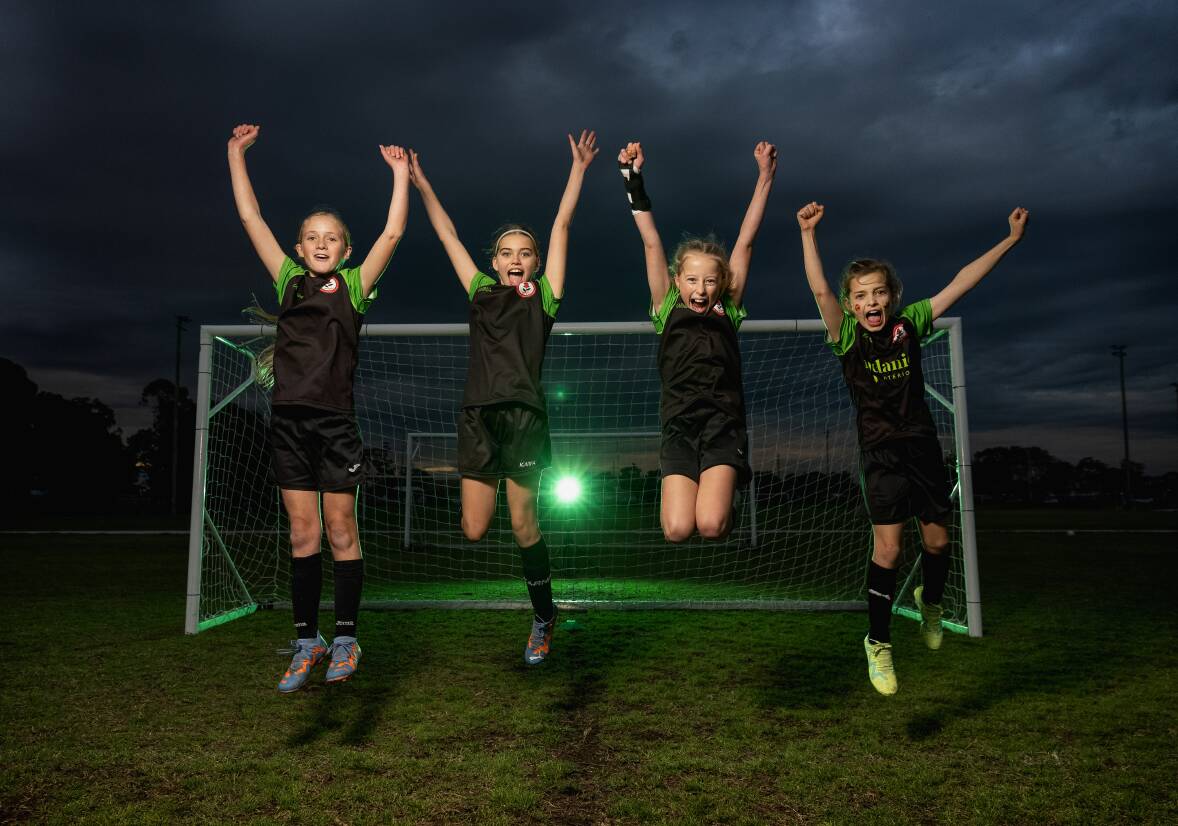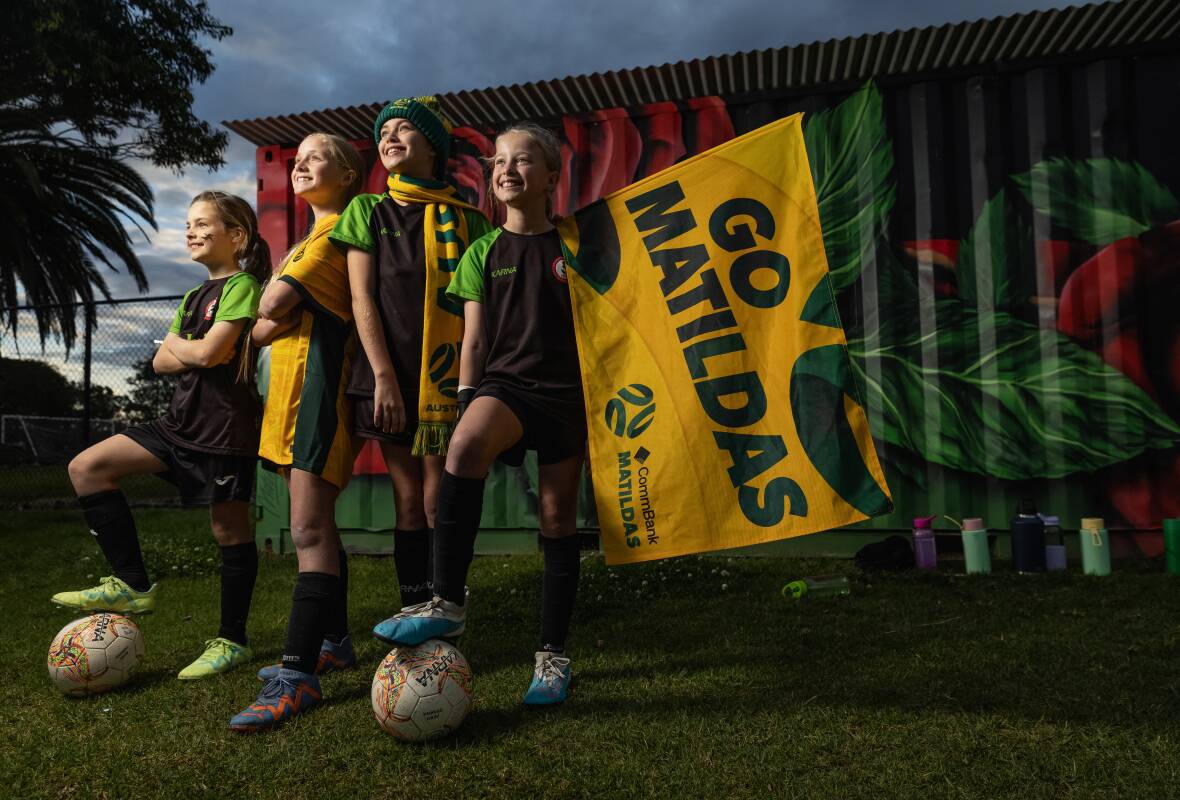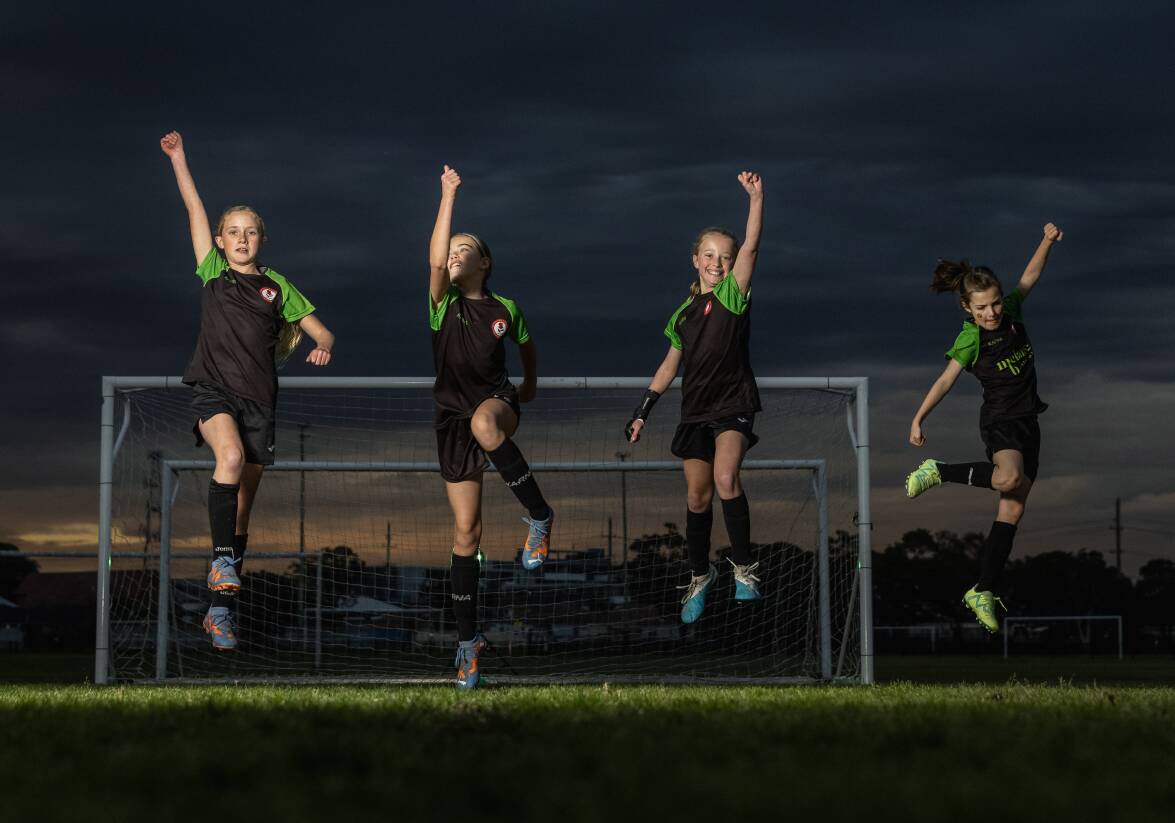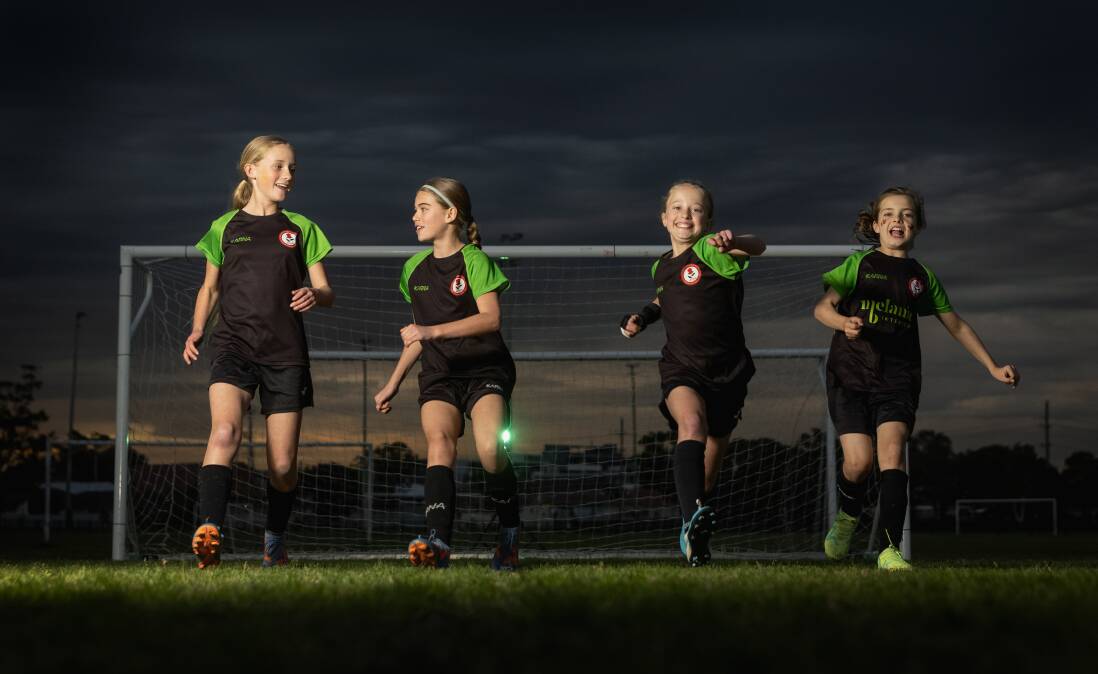As the Matildas played their penultimate World Cup game, a fierce semi-final lost to England, young players watched on filled with expectation for their future careers.
"Everyone was screaming. I was so happy. I think I lost my voice," Broadmeadow Magic under 15s defender Aria Holland said.
Like her clubmates - striker Alivia Bozinoski (15), centre midfield Elli Hungerford (13) and wing Ingrid Stolk (12) - Miss Holland dreams of going pro.
Her career goal: "definitely the Matildas".
Adamstown Rosebud coaching coordinator Kerry Conquest said many young players saw real potential for their future after a whopping 11.5 million Australians tuned in to see the 'Tillies' in their first World Cup semi-final.








Adorned head-to-toe in Matilda's merch, much of which came from being flag-bearers at Sydney Olympic Park, Wednesday's game prompted new hope for the club.
"The young girls from our club, they're so excited," Ms Conquest said. "There's excitement in people who wouldn't take a great notice of elite football at other times."
The club has had up to 20 enquiries about summer sessions since the World Cup began and four queries about next season.
At neighbouring club Broadmeadow Magic, anticipation for the future remains high.
Broadmeadow Magic girls youth technical director Brad Jones said his players were "talented, young, strong women" who "could go very far".
"I hope the Matildas heroics spurs on heaps of new Sam Kerrs and Ellie Carpenters," he said.
But without significant training boosts for women's teams, clubs fear the excitement could be for naught.
Ms Conquest said most Adamstown teams trained at least twice a week, however the success of each session rested on coaching direction.
"We need to make sure the coaches are delivering the right message," she said. "If they're not, it's not going to matter if [players] train every day of the week, they're not going to get any better.
"It is the dog chasing its tail."
For Ms Conquest, this must start at grassroots level so players are retained. Many young teams are coached by volunteer parents.
"We need to get the coaches interested in going to courses and learning the right thing to be teaching kids," she said. "We try to encourage people to do grassroots courses."
Mr Jones said "adequate facilities" and "access to coaching programs" would continue to be pushed for in women's soccer.
"I want to make sure the girls who come in to try the sport enjoy [it] and stay connected," he said.
"A lot of times, when teams are formed in community [clubs], a mum or a dad will put their hand up," Mr Jones said. "They made not have had access to coaching training."
Prime Minister Anthony Albanese announced on Saturday a $200 million investment into the Play Our Way program, which will train young players across all sports. An expert panel of female athletes has been appointed to design the program and applications are expected to open next year.
The announcement came as Matildas captain Sam Kerr called for more money to develop the nation's grassroots soccer programs.
Of the 23 women selected for the Matildas World Cup final squad, 19 play for clubs overseas. Just two - Cortnee Vine and Clare Hunt - are attached to NSW-based clubs.
Northern NSW Football is responsible for Hunter competitions to premier league levels. Free training sessions are offered to all coaches of younger age brackets before more rigorous education is expected.
A $10 million state government grant under the NSW Football Legacy Fund covers training for coaches until June next year. With the grant, Northern NSW is breaking even on training costs.
General manager Annelise Rosnell said Northern NSW would push for "sustainable" programs off the back of Matilda's success.
"That will mean looking to government for more funding to show the value in what we have done so far," Ms Rosnell said. "[We may also] commercialise projects to ensure we can offer what we are offering currently."
More than 1,000 players have joined across the northern part of the state in the last season. The Hunter has around 6,500 female players and there are just under 14,500 across northern NSW.
"We need opportunities for people to get involved and invest in women's football," Ms Rosnell said. "The success of the Matildas - the way people have gotten behind them- shows a demand."







